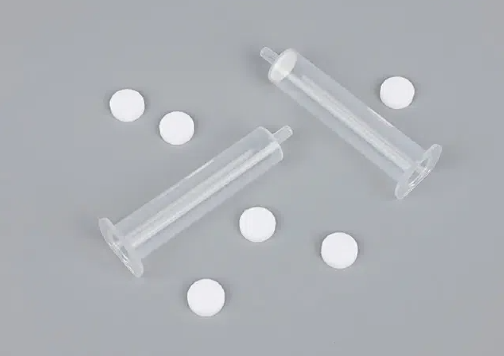close
Choose Your Site
Global
Social Media
Views: 0 Author: Site Editor Publish Time: 2025-05-19 Origin: Site








Have you ever wondered why some laboratories insist on using filter pipette tips instead of regular tips? Could this small accessory really make a difference in your experiments? The truth is, Pipette Tips Filter play a vital role in ensuring accuracy and preventing contamination in sensitive lab work.
In this article, we’ll explore what filter pipette tips are, their unique advantages, and when you should choose them for your lab applications. You’ll also discover why high-quality Pipette Tips Filter are essential for achieving reliable, reproducible results. By the end, you’ll be ready to make informed decisions about your pipetting tools.

Pipette Tips Filter are specialized disposable tips equipped with a filter barrier inside. This barrier blocks aerosols, liquids, and contaminants from traveling up into the pipette body, reducing cross-contamination risks. The filter is usually made of hydrophobic material that repels liquids but allows air to pass through freely.
Compared to universal pipette tips, filter tips provide an additional level of protection for both the sample and the instrument. This feature is critical in molecular biology, clinical diagnostics, and any research requiring high precision.
| Feature | Description |
|---|---|
| Filter Material | Hydrophobic membrane to block aerosols/liquids |
| Tip Material | High-quality polypropylene for durability |
| Sterility | Often available sterile for contamination control |
| Volume Range | Compatible with various pipettes (0.1µL–1000µL) |
| Compatibility | Fits most standard and electronic pipettes |
The benefits of using Pipette Tips Filter go beyond simple convenience. Here’s why labs worldwide trust them:
Filters block aerosols and liquids from entering the pipette shaft. This is crucial when working with PCR, RNA, or DNA samples that are extremely sensitive. It protects both the sample and the pipette from contamination that can skew results.
By preventing liquid entry, filter tips extend the lifespan of expensive pipette instruments. Avoiding internal contamination reduces costly maintenance and downtime.
Because filter tips reduce contamination, experiments show better consistency and fewer false positives. This leads to reliable data and confident conclusions.
Filter tips are designed with precision, ensuring smooth liquid flow and preventing sample droplets from sticking inside. This minimizes wastage, which is important in low-volume or precious sample work.
For infectious or toxic materials, filter tips provide an essential barrier protecting lab personnel and equipment.
Not every experiment requires filter tips, but their use is highly recommended in certain conditions. Here’s a quick guide on when to choose Pipette Tips Filter:
PCR and qPCR assays: Avoid false positives caused by aerosol contamination.
RNA and DNA work: Prevent cross-contamination and sample degradation.
Clinical diagnostics: Maintain sterility and accuracy.
Microbiology: Safely handle bacteria or viral samples.
Low-volume pipetting (<10 µL): Ensure precise sample transfer.
Enzymatic reactions: Avoid inhibitors or contaminants affecting activity.
Routine buffer transfers where contamination risk is low.
Large-volume pipetting where cost efficiency is a concern.
As scientific research becomes more advanced, so do the tools used in laboratories. Today’s labs face greater demands for contamination control and high-precision results, which is why the use of Pipette Tips Filter is growing. With the introduction of robotic pipetting systems and automated liquid handling, filter tips have evolved to be more compatible with these advanced technologies.
Additionally, modern filter tips are made with low-retention materials that reduce the potential for sample sticking. This is crucial for high-value reagents or low-volume pipetting, where every microliter counts.
Labs are also focusing on sustainability, and many manufacturers are producing filter tips that are recyclable or come in eco-friendly packaging, further reducing the environmental footprint of laboratory consumables.
| Feature | Filter Pipette Tips | Universal Pipette Tips |
|---|---|---|
| Aerosol Protection | Yes, with hydrophobic filter | No |
| Cross-Contamination Risk | Low | Higher |
| Pipette Protection | Protects pipette shaft | No protection |
| Sample Loss | Minimal due to precision design | More potential loss |
| Cost | Slightly higher | Lower |
| Ideal Use Cases | Molecular biology, diagnostics | General lab tasks |
A: Filter tips have an internal barrier that blocks aerosols and liquids, preventing contamination of both sample and pipette.
A: While suitable for most applications, filter tips are especially recommended for sensitive assays like PCR, DNA/RNA work, and clinical diagnostics.
A: Yes, most filter tips are designed to be compatible with standard and electronic pipettes across a wide volume range.
A: Tips should be changed between samples to avoid cross-contamination, particularly in sensitive tests.
A: Many filter tips are available sterile to meet stringent lab requirements, especially when working with sensitive or hazardous materials.
Choosing the right pipette tips can dramatically affect your lab’s efficiency and data reliability. Pipette Tips Filter provide crucial protection against contamination, safeguard pipette instruments, and support consistent results across various scientific fields.
For laboratories demanding precision and quality, investing in Pipette Tips Filter that meet the highest standards of design and functionality is an essential step toward enhancing your workflow. Ensure you select a product that aligns with your specific research needs to achieve the best possible results in every experiment.